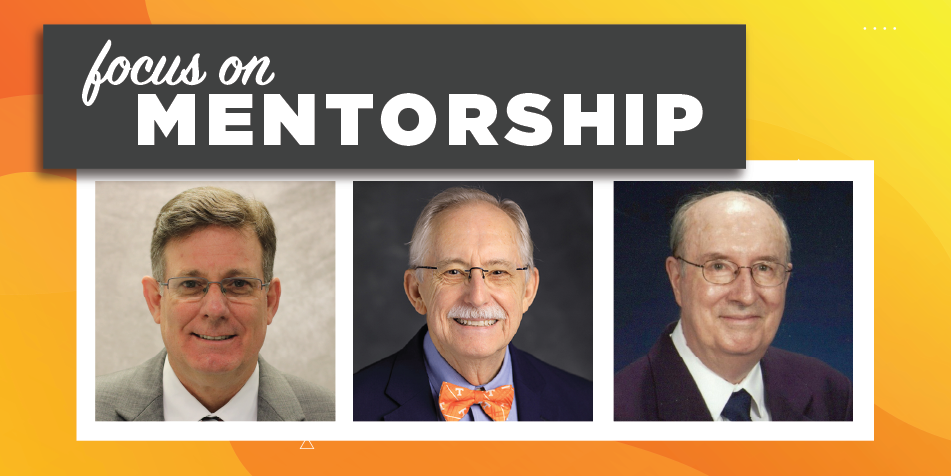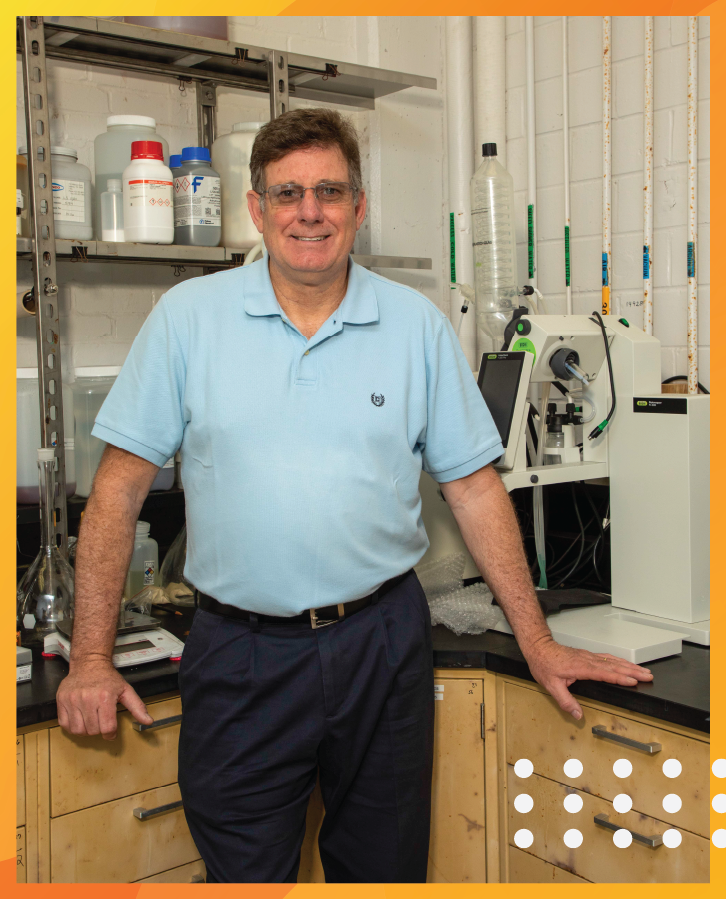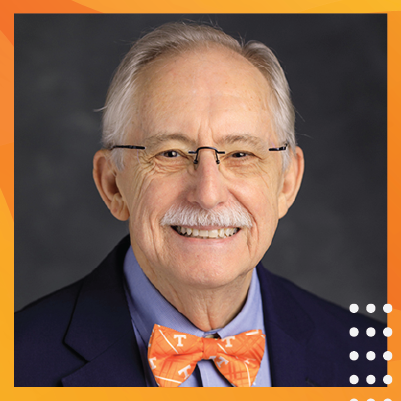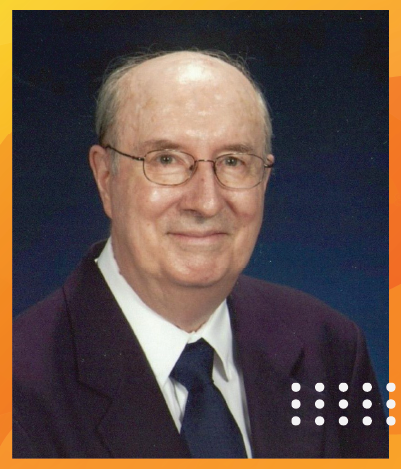
Lee Shippy prides himself on his network and keeping in touch with colleagues and mentors who helped shape his career, including two advisors from his master’s degree at the University of Tennessee, Knoxville. Today, Shippy is pursuing his PhD while working for Consolidated Nuclear Security at the Y-12 National Security Complex, and continues to work on a University of Tennessee Research Foundation-Y12 joint invention alongside his longtime mentors, Professor Robert Counce and Adjunct Professor Jack Watson from UTK’s Department of Chemical and Biomolecular Engineering.

Early in his career, Shippy explored next-generation lithium process technologies – a challenge, because much of his research was in its infancy during the late 1980s and early 1990s. During this time, he completed his master’s degree in chemical engineering alongside his mentors Counce and Watson. Over the years, Shippy kept in touch with them, calling them up with questions about his work, discussing potential job offers and even playing tennis matches with Watson. “I feel very comfortable working with them. I can’t say that of really any other student-teacher relationship that I have had,” said Shippy. “I look to them as experts in their fields, and if I have a question, they’re open. They’re very welcoming.”
In 2018, after spending years in telecommunications and medical device work, Shippy returned to the area as a chemical engineer for Y-12. A few months later, he began his doctoral program at UTK under the guidance of his previous advisors.

“When he told me he wanted me to come back to school, I was a bit surprised because I knew what all he had done and his success in his career,” said Counce. “Lee is one of these people that continues to be enthusiastic about new ideas and to be excited by new discoveries and – son of a gun – that’s what makes a researcher. I’ve been pleased by what he has accomplished.”
“Things fit together like a good puzzle,” said Watson. “Like all puzzles, it wasn’t that easy to put together, but it made a good result. Lee is different in that he had a lot more experience and we didn’t have to teach him everything, but I think we have taught him some things, so I think he’s gained from it.”

Watson, Counce, and Shippy developed a method and apparatus for the reduced-cost separation of metal ions in aqueous solutions that are otherwise very difficult to separate. This patent-pending technology could lower production costs for rare earth and other metalsfor industries such as consumer electronics and battery manufacturing.
“We’re trying to separate things that are difficult to separate, historically,” said Shippy. “We have used very hazardous processes to do that separation in the past and we now have the opportunity to accomplish the same things with a non-hazardous system or process.”
Their work on the technology is made possible through a Y-12 partnership with UTRF. The three have made significant progress over the past two years and secured a Plant Directed Research and Development funded project.
“One of our core missions at Y-12 is to support technology and innovation,” said Jennifer Palmer, CNS Technology Transfer program manager . “Each day, employees like Shippy tackle challenging problems found in a manufacturing environment to develop new technologies and cost-effective solutions. Our partnership with institutions like UT and UTRF helps to advance these vital technologies.”
The University of Tennessee Research Foundation is proud to support these three researchers, especially given the depth of expertise Counce and Watson have brought to their fields and their dedication to mentoring young or returning graduate students like Shippy.
“It is always heartwarming to witness the long-term, positive impact UT advisors have on their mentees,” said UTRF Vice President Maha Krishnamurthy. “UTRF is proud to support this innovative technology created by UTRF inventors and their mentees.”
Looking ahead, Shippy is thankful to continue working with Counce and Watson on the technology. “I’m thankful for the leadership at Y-12 that has encouraged and been supportive of me going back to school,” said Shippy. “It’s a win-win-win situation really for the university, Y-12, and me personally. They’ve accommodated me in things that I’ve wanted to accomplish from the beginning.”